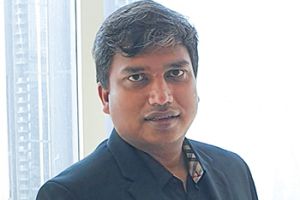
A responsible attitude towards nature, climate-friendly energy technology, economical use of resources and access to clean drinking water are criteria that will decide our future. This applies in particular to the design and construction environment, given that buildings have an operating life of 40 to 80 years.

Alstom, a global leader in rail transport and sustainable mobility, is working closely with many of the Middle East’s transportation authorities to shape the future of the region’s mass transit and mobility network, deploying its greener and smarter sustainable solutions.

With water scarcity being at the root of many challenges that the Middle East faces, Dubai-based Dake Rechsand says its breakthrough sand technology can create a new water source for the region as well as transform deserts into lush tropical forests and organic farms, by harvesting and storing rainwater.

New heating, ventilation and air-conditioning (HVAC) technologies are disrupting the traditional methods of cooling while offering a more sustainable use of energy.

Dubai Municipality said work is currently under way on Dh6.6 billion ($1.8 billion) environmental and sustainability projects, including a giant solid waste processing facility that can handle 1.9 million tonnes per year. The Dh4-billion Dubai Centre for Waste Processing plant is coming up in the Warsan area of the emirate.
Polypipe Middle East, a leading provider of sustainable climate and water management solutions in built environment for the region, is introducing a new high density polyethylene (HDPE) solution under leading drainage brand, Terrain Fuze, on the Middle East market.


